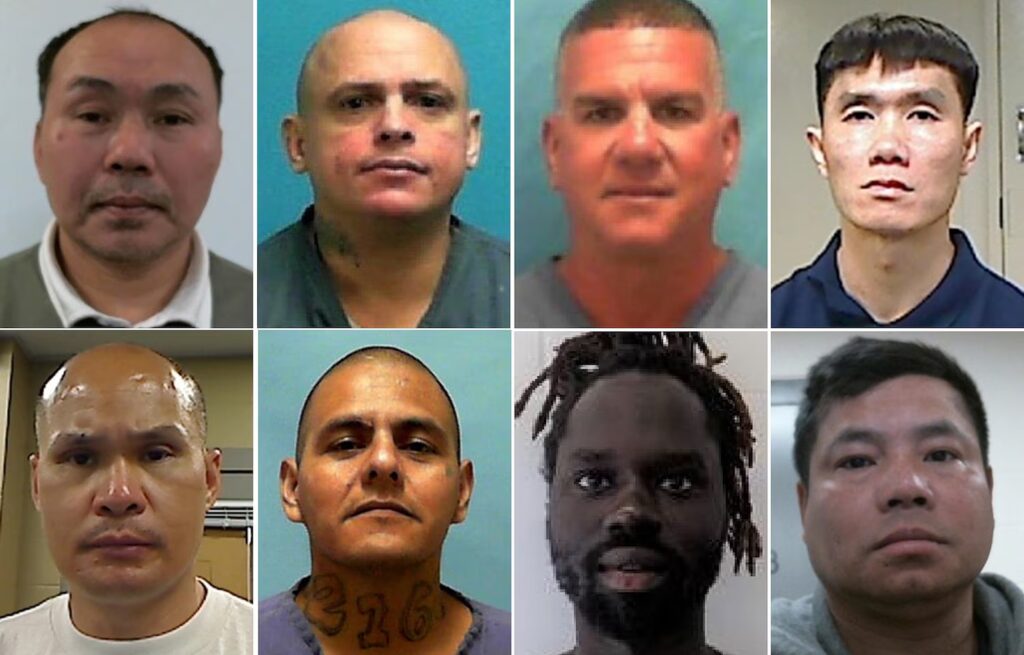South Sudan’s government has defended its decision to receive third-country nationals and one South Sudanese citizen recently deported from the United States, after facing domestic criticism for failing to clarify the terms of its agreement with Washington.
The deportees, convicted of crimes including murder, sexual assault, and robbery, had either completed or were nearing the end of their prison sentences.
Only one of the eight individuals is from South Sudan, while the others are nationals of Myanmar, Cuba, Vietnam, Laos, and Mexico. U.S. officials said most of their home countries had refused to accept them.
Enrique Arias-Hierro and Jose Manuel Rodriguez-Quiñones from Cuba, Thongxay Nilakout from Laos, Jesus Muñoz-Gutiérrez from Mexico, Dian Peter Domach from South Sudan, Kyaw Mya and Nyo Myint from Myanmar, and Tuan Thanh Phan from Vietnam were deported following a late June Supreme Court ruling.
The status of the deportees was initially unclear, and the South Sudanese government was expected to provide details.
In a statement on Tuesday evening, the Ministry of Foreign Affairs confirmed that the eight individuals arrived at Juba International Airport on July 5 as part of “standard deportation procedures” conducted by the U.S. government.
“In line with the sovereignty responsibilities and established procedures, South Sudan received the individuals through the appropriate national institutions,” the statement said.
“They are currently under the care of the relevant authorities, who are screening them and ensuring their safety and well-being in accordance with South Sudanese laws and appropriate international norms and practices,” it added.
The ministry said the move followed ongoing bilateral discussions between Juba and Washington.
“As part of the broader framework of cooperation, both countries continue to engage constructively and in good faith on a range of matters, including political, economic, investment, security, humanitarian, and consular-related issues,” the statement said.
“This engagement aims at normalizing relations, deepening bilateral cooperation, and addressing issues of mutual concern and interest.”
The statement also acknowledged the long-standing U.S. support for South Sudan during its struggle for self-determination, the 2011 independence referendum, and the post-independence period.
“In the spirit of mutual respect, support, understanding, and solidarity, South Sudan responded positively to a request from the U.S. authorities as a gesture of goodwill, humanitarian cooperation, and commitment to mutual interests,” it said.
The government reaffirmed its “full and strong commitment to the fundamental reality and fact that its highest obligation and responsibility remains to the beloved people of South Sudan,” vowing to uphold national interests, the rule of law, and international obligations.
Earlier this year, U.S. Secretary of State Marco Rubio revoked all visas for South Sudanese passport holders, citing the country’s past refusal to accept deported nationals.
South Sudan remains unstable, with the U.S. State Department warning against travel due to “crime, kidnapping, and armed conflict.”




